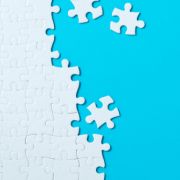Defense Mechanisms (original) (raw)

Defense mechanisms are unconscious strategies whereby people protect themselves from anxious thoughts or feelings.
Defense mechanisms aren’t inherently bad—they can allow people to navigate painful experiences or channel their energy more productively. They become problematic, however, when applied too frequently or for too long.
The concept arose from the work of Sigmund Freud and his daughter Anna. Freud’s framework has proven nearly impossible to empirically validate, and his methods are no longer widely used in therapy. Still, his theories spurred the growth of psychology, and some of his ideas—like defense mechanisms—still stand today. Identifying when a patient employs a defense mechanism, such as projection, for instance, can be a helpful catalyst in the therapeutic process.
Schools of therapy other than Freud's psychoanalytic approach, such as cognitive behavioral therapy, observe similar tendencies and behaviors but attribute them to irrational beliefs rather than to the unconscious. The overarching idea that people act out inner conflicts in specific ways is widely accepted.
Contents
10 Major Defense Mechanisms

Projection: Attributing one’s unacceptable feelings or desires to someone else. For example, if a bully constantly ridicules a peer about insecurities, the bully might be projecting his own struggle with self-esteem onto the other person_._
Denial: Refusing to recognize or acknowledge real facts or experiences that would lead to anxiety. For instance, someone with substance use disorder might not be able to clearly see his problem.
Repression: Blocking difficult thoughts from entering into consciousness, such as a trauma survivor shutting out a tragic experience.
Regression: Reverting to the behavior or emotions of an earlier developmental stage.
Rationalization: Justifying a mistake or problematic feeling with seemingly logical reasons or explanations.
Displacement: Redirecting an emotional reaction from the rightful recipient to another person altogether. For example, if a manager screams at an employee, the employee doesn't scream back—but the employee may yell at her partner later that night.
Reaction Formation: Behaving or expressing the opposite of one’s true feelings. For instance, a man who feels insecure about his masculinity might act overly aggressive.
Sublimation: Channeling sexual or unacceptable urges into a productive outlet, such as work or a hobby.
Intellectualization: Focusing on the intellectual rather than emotional consequences of a situation. For example, if a roommate unexpectedly moved out, the other person might conduct a detailed financial analysis rather than discussing their hurt feelings.
Compartmentalization: Separating components of one’s life into different categories to prevent conflicting emotions.
Theories of Defense Mechanisms

Defense mechanisms are rooted in Freud’s theory of personality. According to his model, the mind has three dueling forces: the id (unconscious and primitive urges for food, comfort, and sex), the superego (a partly conscious drive toward moral and social values), and the ego (a partly conscious force that moderates the id and superego).
Anxiety, in this paradigm, emerges when the needs of the id clash with the needs of the superego. To mitigate the tension, the ego deploys strategies of self-deception to avoid the discomfort. The unacceptable thought or emotion may be denied, for example, or rationalized or projected onto someone else.
Many of Freud’s ideas have not stood up to modern scientific scrutiny. But psychological defenses have proven to be an enduring concept, one that researchers and clinicians continue to explore today.
How do psychologists today conceptualize defense mechanisms?
In a testament to the intuitive appeal and potential utility of the idea of psychological defenses, multiple post-Freudian theorists and researchers independently converged on the same concept. Alfred Adler developed a similar idea of “safeguarding strategies,” while Karen Horney described protective strategies used by children of abusive or neglectful parents. Leon Festinger developed the well-known concept of “cognitive dissonance,” Carl Rogers discussed the process of defense as denial and perceptual distortion, and Albert Bandura conceptualized defenses as “self-exoneration mechanisms.”
The influential psychiatrist George Vaillant organized defenses on a scale of immature to mature, defining them as “unconscious homeostatic mechanisms that reduce the disorganizing effects of sudden stress.” Current discussions of coping mechanisms and emotion regulation embody the idea of defenses as well.
Why did defense mechanisms evolve?
Like all living systems, human beings have evolved multiple strategies for defending against threats to our survival and physical integrity. The immune system is one example; the fight-or-flight mechanism embedded in our nervous system another. Similar defensive mechanisms have likely evolved to protect and promote the integrity of our psychological architecture—our sense of self, identity, and esteem.
Are defense mechanisms unhealthy?
Not always. More of the commonly discussed defenses, such as denial and projection, may be maladaptive and worth addressing in therapy. But the purpose of defense mechanisms is to protect the self from anxiety or distress—and sometimes that’s a good thing. For example, a guest at a party might use humor to diffuse an uncomfortable situation. Or someone in an emotionally draining profession, such as a counselor for suicidal individuals, may decide to compartmentalize their work to better function in daily life.
Defense Mechanisms in Everyday Life

Life is full of unexpected or challenging situations, and defense mechanisms can potentially alleviate that discomfort. They can manifest, for example, in passive-aggressive behavior when two friends can’t confront conflict or when an employee displaces anger toward her boss onto her daughter that night at dinner. Defense mechanisms can reflect isolated incidents, both beneficial and maladaptive, or a consistent pattern of behavior that can be explored with the help of a therapist.
When do individuals develop defense mechanisms?
Defense mechanisms might emerge more severely and consistently in some people due to insecurities in childhood, some psychologists believe. Children may not know how to grapple with or overcome certain challenges, which leads them to question themselves and enact defenses against those challenges. Adults have the ability to address those challenges, but obsolete defense mechanisms might occasionally reappear to alleviate the stress.
Which defense mechanisms can hurt relationships?
Close relationships often arouse our deepest emotions, and sometimes we turn to defenses to manage those emotions. Yet this can lead to more anxiety by driving a wedge into the relationship, so it’s valuable to reflect on whether you or your partner use certain defenses. These include:
• Projection: Do you blame your partner for your own flaws? Rather than admit it, do you accuse your partner of being messy or careless?
• Denial: Do you pretend that negative experiences haven’t occurred? Do you close your eyes and think that everything is going to be fine, even when your partner seems upset?
• Compensation: Do you turn to alcohol or drugs instead of confronting negative emotions? Is it easier to have an extra glass of wine or beer rather than talk to your partner about what's bothering you?
How are defense mechanisms addressed in therapy?
When a person in therapy deploys psychological defenses, it can be an opportunity for the therapist to explore those patterns with the patient. For example, a therapist might work with a patient who denies that they have a problem with drugs or a patient who seems to project their insecurities onto their partner. These instances of self-deception can be an invitation to discuss underlying challenges that may help the patient move forward.
How can parents address a child’s defense mechanisms?
Sometimes it can be helpful to explore a child’s motivations to see if disruptive or bad behavior may be defense mechanisms masking difficult emotions. For example, a 5-year-old might begin acting out after a new baby is born. The anger could mask his sadness at feeling displaced by the new baby in the family. Parents could then approach the angry outbursts by speaking to the child about the change and balancing their attention between the two when possible instead of disciplining the child. A child’s ability to accept and master painful feelings will help him or her mature into a well-adjusted adult.
It's all too easy to become defensive in difficult conversations. But that creates even more problems that eventually erode the relationship.
If you have put someone on a pedestal and then knocked them down, you might be using defense mechanisms called “idealization” and “splitting.”
Repeated, unfounded accusations are a major tell.
Projection, a defense mechanism, can destroy relationships and erode the receiver's self-esteem. Learn how to cope when you are subjected to this kind of behavior.
Scientists have identified the brain circuits behind panic attacks, offering insights into new treatments for panic disorder.
Scientists have identified the brain circuits behind panic attacks, offering insights into new treatments for panic disorder.
Although women are generally viewed as victims of male aggression, they too can be the perpetrators of intimate partner violence. This challenges social stereotypes of women.
Although women are generally viewed as victims of male aggression, they too can be the perpetrators of intimate partner violence. This challenges social stereotypes of women.
When partners are grumpy or text threads go silent, it’s easy to take things personally. The good news: It’s probably not about you.
When partners are grumpy or text threads go silent, it’s easy to take things personally. The good news: It’s probably not about you.
You can change without growing but you can’t grow without changing.
You can change without growing but you can’t grow without changing.
It’s natural to cling to your views during conflict, but adopting another’s perspective can take your influence to the next level.
It’s natural to cling to your views during conflict, but adopting another’s perspective can take your influence to the next level.
Why do we get so upset over political disagreements? The root causes of this stress go beyond policy differences.
Why do we get so upset over political disagreements? The root causes of this stress go beyond policy differences.
An internal family systems perspective on the protective mental trick of undoing.
An internal family systems perspective on the protective mental trick of undoing.
Why do individuals continue to support Trump after he has been accused of so many illegal and immoral actions. We surveyed Trump supporters in 3 studies to find out.
Why do individuals continue to support Trump after he has been accused of so many illegal and immoral actions. We surveyed Trump supporters in 3 studies to find out.
It's often off-putting when someone presents their opinion as if it's a fact. The concept of "master talk" could help us understand why.
It's often off-putting when someone presents their opinion as if it's a fact. The concept of "master talk" could help us understand why.
What if accountability wasn't framed as a spiteful threat of banishment and ridicule, but instead a pathway back to relationality for people who actually want to change?
What if accountability wasn't framed as a spiteful threat of banishment and ridicule, but instead a pathway back to relationality for people who actually want to change?













